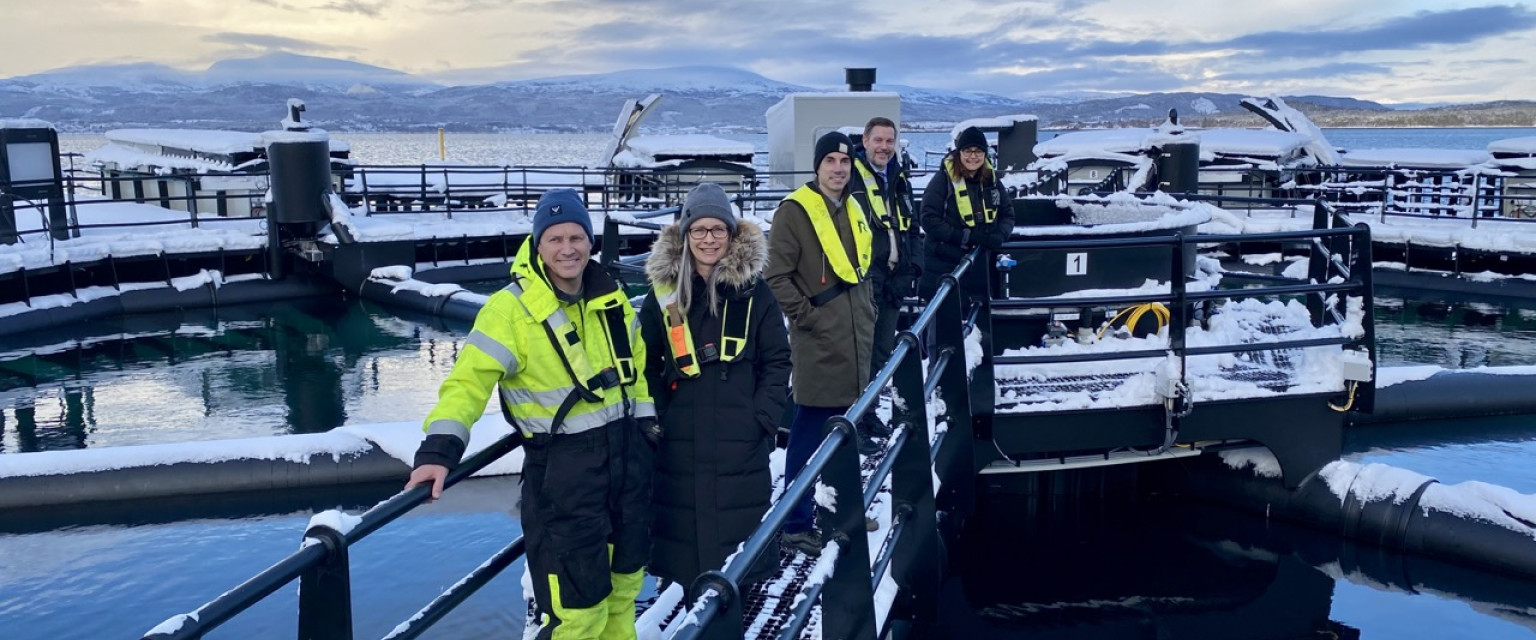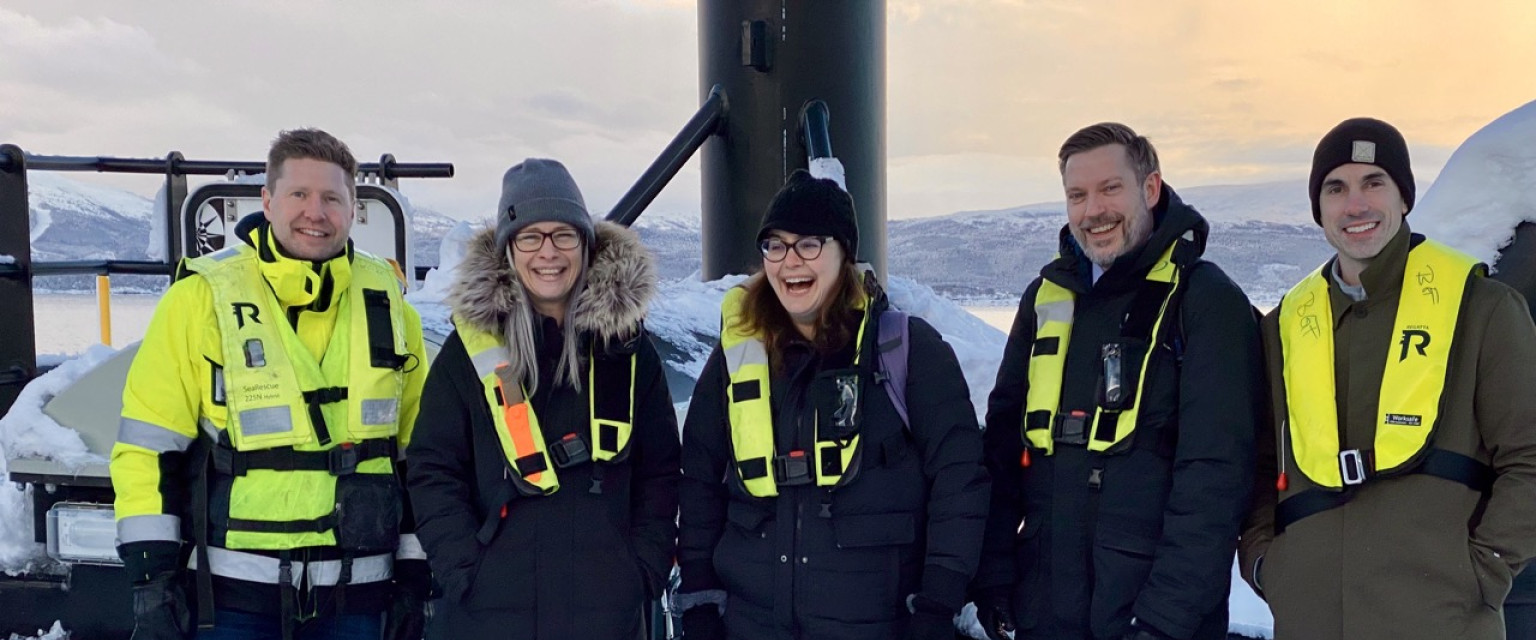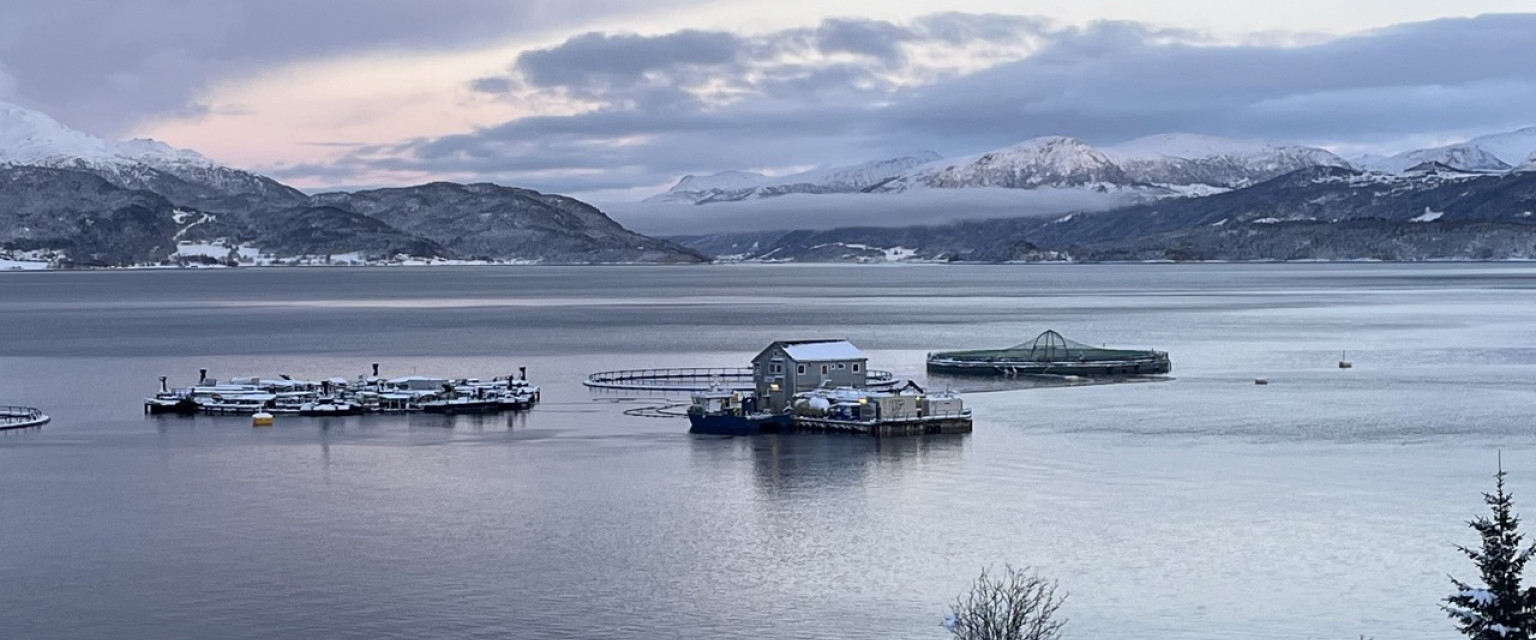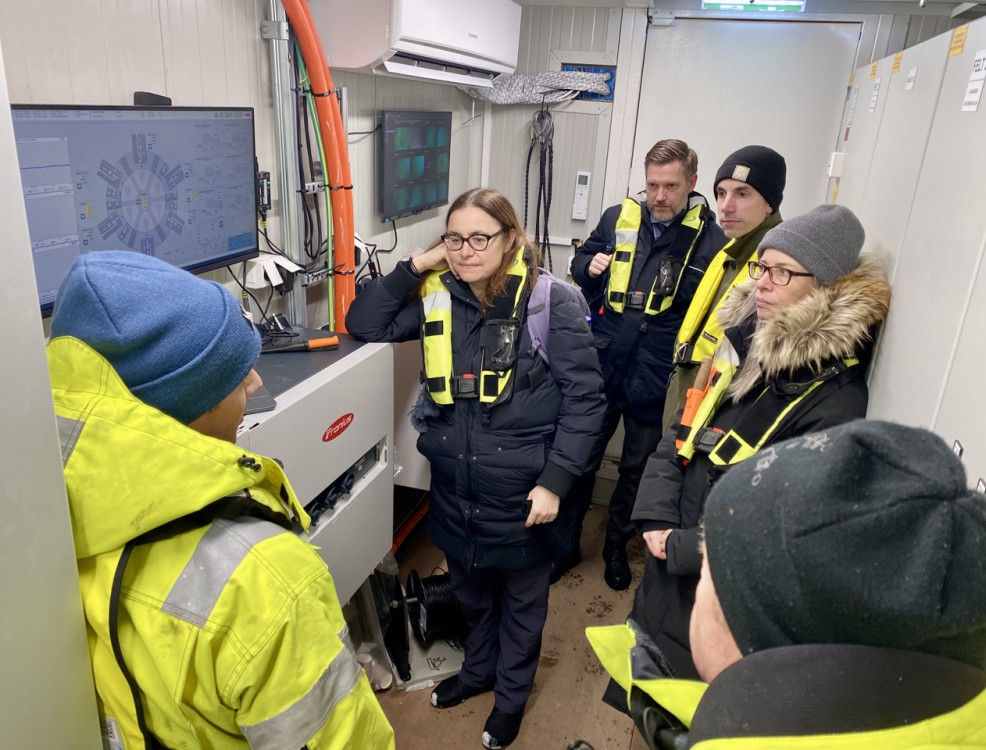A delegation from the Department of Fisheries and Ocean and the Government of Canada recently visited Norway on a study tour to learn more about closed-containment aquaculture technology. One of the site visits was near Molde for a tour of Bluegreen’s Marine Donut.

Officials have been following the evolution of closed-containment technology in the salmon farming industry since its emergence and wanted to visit those currently in operation to understand their applicability in Canada. More specifically, the members of the delegation were interested in gathering input on how closed-containment technology can be implemented effectively in British Columbia as part of the anticipated Transition Plan.
According to the Department of Fisheries and Oceans, the goal of the Transition Plan is “…to advance innovation and growth in sustainable aquaculture in British Columbia that progressively minimizes or eliminates interactions between salmon open-net pens and wild salmon while also taking into account social, cultural and economic objectives”.
"The Canadian delegation was very interested in the Marine Donut and Bluegreen’s involvement in closed-containment technologies for salmon farming", says Tufte. "They were inquisitive about how the technology in closed aquaculture facilities works from a functional and biological aspect, as well as its capacity, economics, and how these systems are regulated within frameworks existing in other jurisdictions such as Norway. Delegates were also interested in hearing what it would require for closed-containment technology, like Marine Donut, to be successfully deployed in Canadian waters."
Read more: This is how the Marine Donut works
Licenses should have a duration of at least 9 years. This is to ensure predictability and assurance of the capital investment required to implement new technologies such as closed-containment. We need more predictability than the current licenses with a duration of 2-6 years.
The infrastructure for further electrification of Indigenous communities needs to be further supported and developed along the coast to provide green shore power to floating-closed facilities.
There should be an incentive-based system for early adoption of closed containment technologies. Fish farmers could be rewarded if challenges related to issues such as escapes, sea lice, and environmental interactions are reduced or avoided.
A clear and predictable regulatory framework is critical. To make significant investments in new technology, fish farmers need clear, efficient, predictable regulatory processes, and quick decision-making based on science.
A very critical component for success in a sensible and successful transition plan is coexistence.
“Coexistence of traditional salmon farming practices and modern closed-containment technologies is critical. Net pens and closed containment aquaculture technologies complement one another rather than compete."
A very relevant scenario is to use floating modern closed containment systems, such as the Marine Donut, for post-smolt production (1 kg) and open pens for grow-out to market-sized fish (5-6 kg).
"We are prepared to construct and deploy closed-containment technology on both coasts of Canada. However, for that investment to happen, we and farming companies need assurance that our capital investment in implementing this technology is protected by a clear regulatory framework that is based on science," says Tufte.
In addition to Bluegreen/Marine Donut, the Canadian delegation visited FishGlobe, Cermaq, Salmon Evolution, and CtrlAqua.
The delegation consisted of Alexandra Dostal, Senior Assistant Deputy Minister at DFO; Brenda McCorquodale, Acting/Senior Director, Aquaculture Management Directorate – Pacific region; Barry Green, Manager, Aquaculture Policy and Regulatory Affairs; and Roy Kristiansen, Trade Commissioner, Canadian Embassy Norway.



